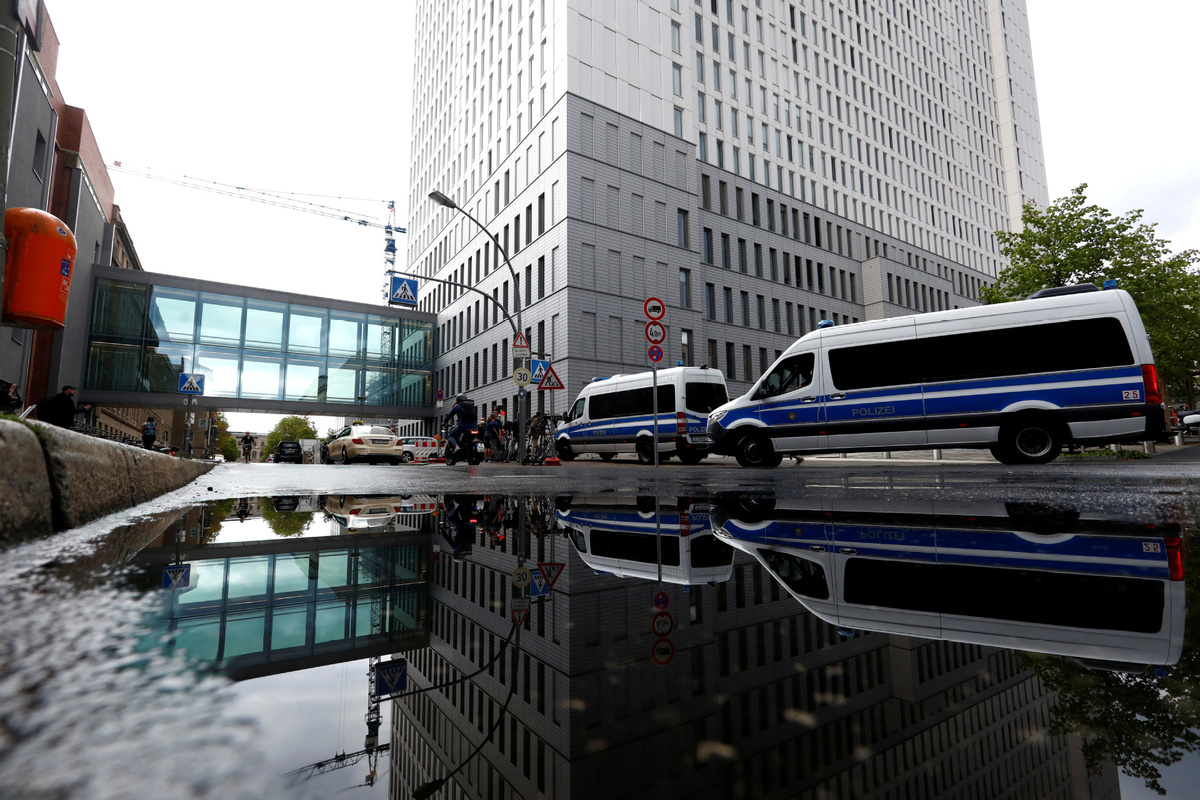'Offensive' Navalny allegations rejected
By REN QI in Moscow | China Daily | Updated: 2020-08-27 10:15

Russia's Foreign Ministry on Tuesday described as offensive Western allegations that opposition politician Alexei Navalny had been poisoned, in a position bolstered by a Kremlin assertion that no investigation is required into Navalny's illness.
The ministry issued a statement following a meeting between Russian Foreign Minister Sergey Lavrov and US Deputy Secretary of State Stephen Biegun, during which Navalny's case was raised, among other issues.
Lavrov pointed out the "suspicious haste" with which the narrative about Navalny's alleged poisoning was picked up in Washington and Brussels.
Navalny is being treated at a hospital in Berlin after being flown to Germany last weekend.
The ministry said that accusations of a cover-up made against the Russian doctors who first treated Navalny were untrue. Navalny was initially treated in the Siberian city of Omsk.
"We regard as deeply offensive the accusations of 'covering up the truth', directed from some Western capitals to the doctors in Omsk, who immediately rendered highly professional aid to Navalny," the ministry said.
Navalny, a leading opposition politician in Russia, fell ill during a flight from Tomsk to Moscow last Thursday, and was taken to a hospital in Omsk, where his condition was stabilized. His wife and associates had requested that he be flown to Germany for treatment, and he arrived on Saturday.
German Chancellor Angela Merkel on Monday called on Russia to investigate the suspected poisoning of Navalny, and to hold the perpetrators accountable. That day, European Union Vice-President Josep Borrell condemned the "attempt on Mr Navalny's life", stressing that the international community is "demanding the facts behind Mr Navalny's poisoning".
Transparent investigation
US Secretary of State Mike Pompeo said on Tuesday that "Navalny's family and the Russian people deserve to see a full and transparent investigation carried out, and for those involved to be held accountable".
But Dmitry Peskov, Kremlin press secretary, countered that any investigation into the case would come if a substance were found inside Navalny's body, and that it was identified.
"We need a reason to investigate," said Peskov, in rejecting accusations that Navalny's sudden onset of illness was caused by an assassination attempt.
"These are allegations that absolutely cannot be true and are simply empty noise."
On Monday, German doctors said Navalny was poisoned by a substance from a group of cholinesterase inhibitors, but were unable to say which one.
Russian health officials contradicted that finding, saying Navalny had tested negative for cholinesterase inhibitors at the hospital in Omsk last week.
The Omsk hospital's unit chief Alexander Sabayev, also on Monday, said that the activist had tested negative for any drugs, including cholinesterase inhibitors.
Peskov called the use of the term "poisoning" by German doctors "hasty", adding that the doctors at the Omsk hospital had battled for three days in treating Navalny and possibly saved his life.
The security committee of the Russian parliament has begun an investigation into whether foreign governments were involved in harming Navalny's health, State Duma speaker Vyacheslav Volodin said.
























